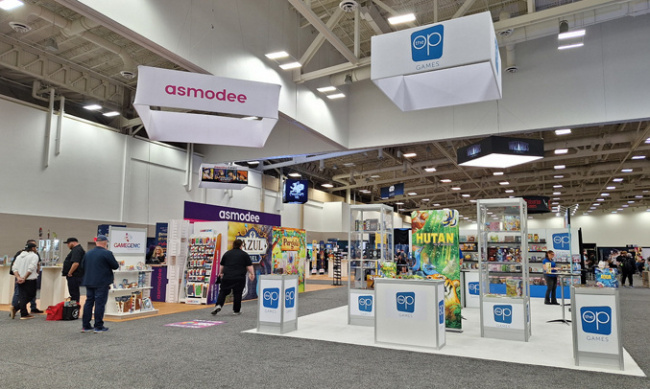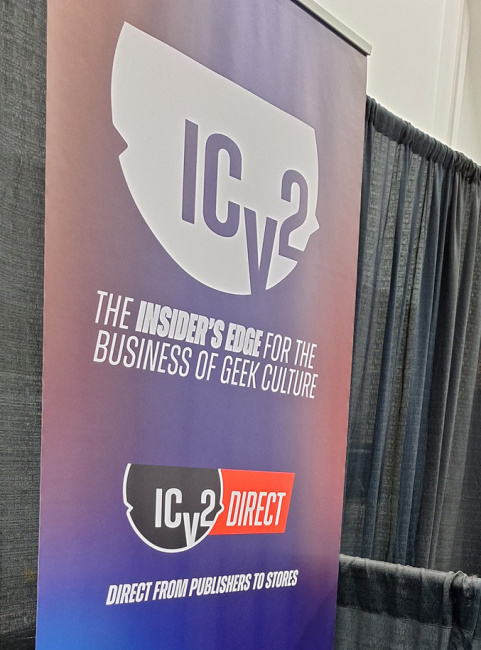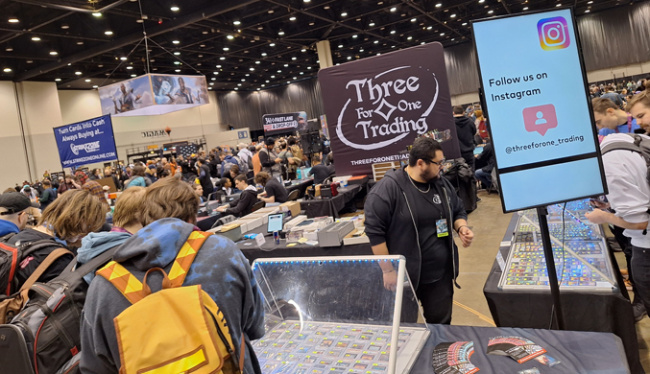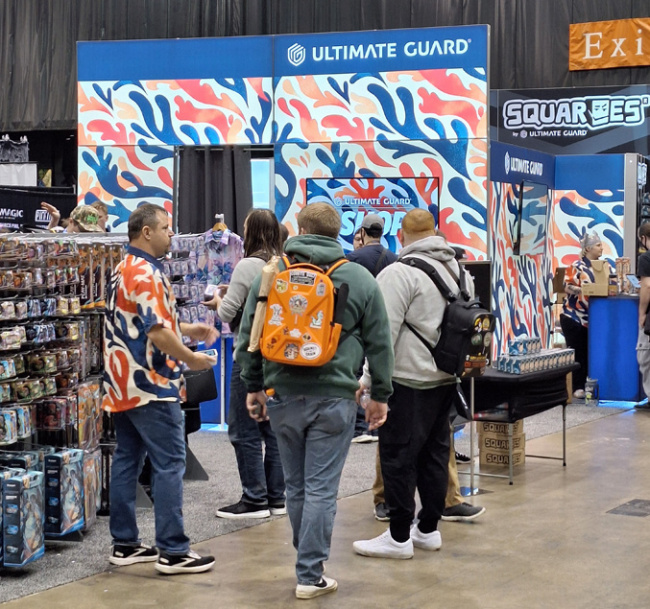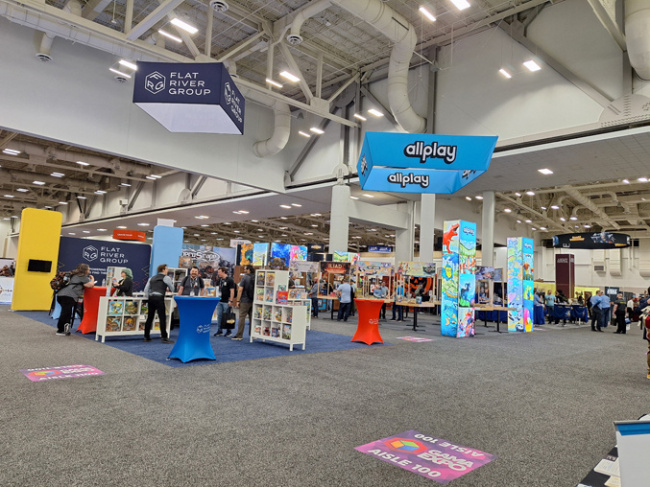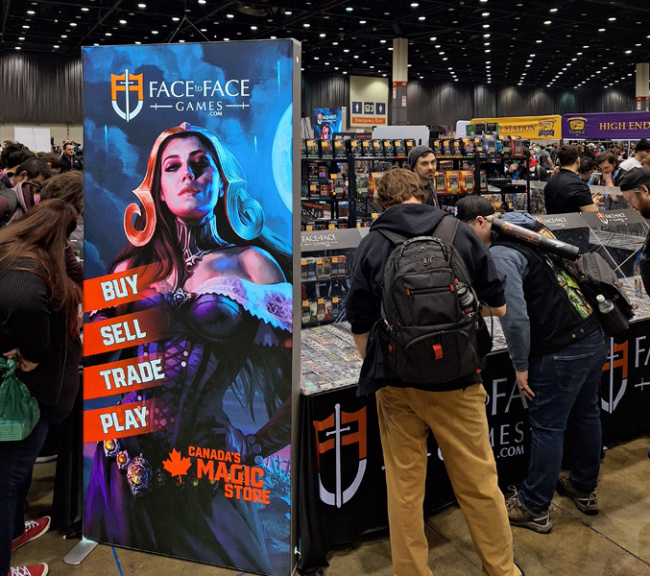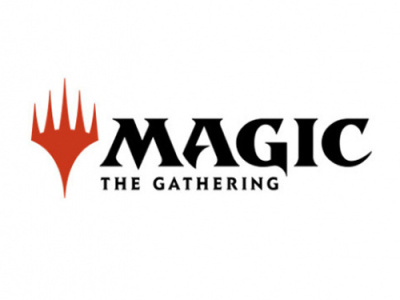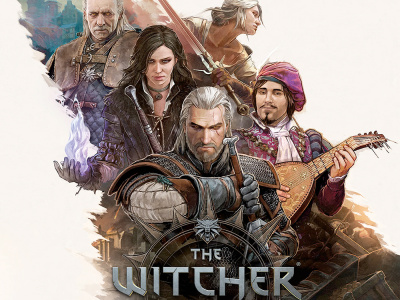In general, this is a plus for the games industry, as a strong Magic: The Gathering is usually good for the games business. A few days later, at GAMA Expo, the strength of the TCG business was further confirmed as the show highlighted several new TCGs coming to market and mid-size TCG companies showing off new sets. Despite Magic's recent slip in year-over-year sales (see "WotC, 'Magic' Sales Down"), it still seems like there are plenty of pieces of the TCG pie for companies get their fill on.
In addition to the TCG companies, MagicCon showcased how well the accessories space is doing. There were several accessories vendors at MagicCon, including heo Group, Ultra PRO, Arcane Tinmen, and Foam Brain Games, that were doing booming business on sleeves, playmats, deck boxes and dice. Dungeons & Dragons was a component of this convention, so some of these sales were likely RPG-related too. The accessories business is strong right now, and it seems consumers just keep on buying. The not-so-great news comes with what seemed to be the talk of GAMA Expo, which was the impact of tariffs on board games and other games that require paper and plastics manufactured in other countries. From conversations I've had with publishers, this situation is incredibly hard to assess as it seems like the only certainty is uncertainty. The publishers I've talked to that have components produced in China have been running numbers in preparation for the tariffs only to have their math change month to month as the government changes the tariff percentages as part of what appears to be a foreign policy negotiation tactic.Needless to say, this unpredictable, fluid situation is both frustrating for publishers, and is making planning releases incredibly difficult. The biggest problem seems to be occurring with crowdfunding projects, as production quotes companies were using to plan out their projects from several months to a year ago have gone up due to tariffs. Absorbing an additional 20% tariff on Chinese-made components for a crowdfunded product that was priced out several months ago (when it ran on Gamefound or Kickstarter) can be back-breaking for first-time publishers and leave them in a real bind when it comes to fulfillment timelines.
However, there is a silver lining in the tariff situation. The games consumer base is still massive and people are buying games, even at increased prices. This trend is more than likely to continue in the near term and keep the games industry on solid footing during this period of uncertainty, even if release schedules become wonky.There's an age-old saying amongst games industry veterans: "We do great in good markets and we do great bad markets, it's the middle ground that we have the problem with." This saying generally refers to the idea that gamers buy games when they are doing well and have lots of disposable income, but they also buy games when money is tight because it's cheap, replayable entertainment. The "middle ground" is where we are headed to right now, a time when our course heading isn't particularly clear and a tidal wave of change is rising. The dedicated games consumer base will hopefully keep us afloat during these times till we can find a clear direction.



